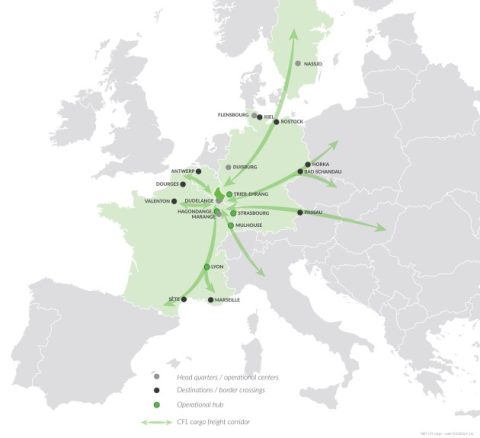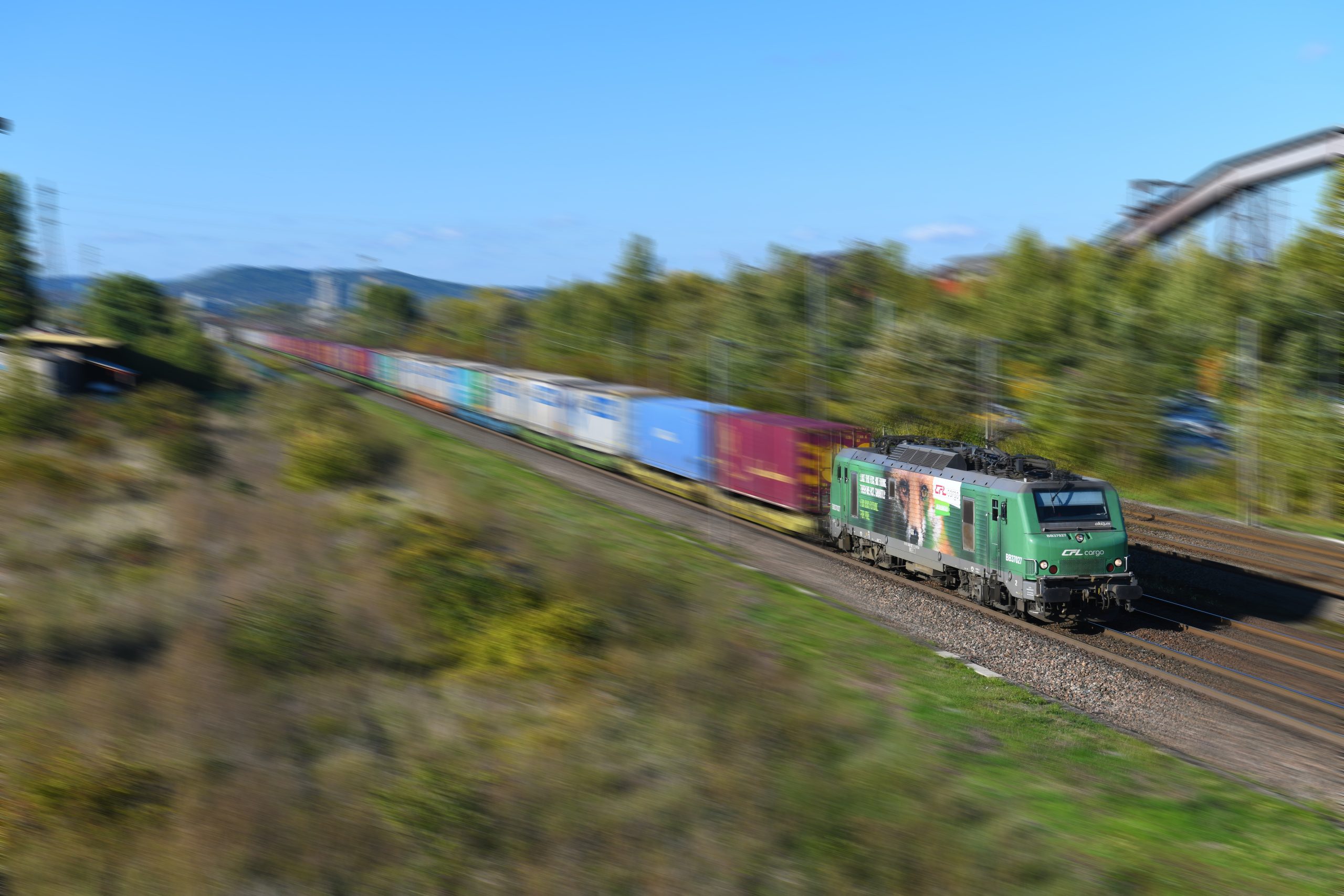CFL cargo: new CEO brings good news despite ‘difficult year’

CFL cargo, the international rail freight company in Luxembourg and sister company to the CFL multimodal group, recently had a change of heads with Sébastien Hoffmann taking over the role of CEO from Laurence Zenner. RailFreight.com had an exclusive interview with M. Hoffmann to better understand what 2023 looked like and what can be expected in the new year.
CFL cargo provides connections mainly along five corridors throughout Europe, with its main operational centre being the multimodal hub in Bettembourg-Dudelange. The Channel Corridor for export products, the Adriatic and Mediterranean Corridors, to reach the seas of southern Europe, the Baltic Corridor to reach the Nordic countries and Central Corridors to reach CEE countries. “Our competitors often work on traditional corridors like the Rhine-Alpine or the North Sea-Baltic. The fact that we can provide services on corridors off the beaten path means we can offer our clients more flexibility.”, Hoffmann said. Currently, he added, the most active corridor is the Central one, with traffic coming from Poland and the Czech Republic.
“On each corridor, we run intermodal trains, which are our backbone, as well as conventional block trains. The dual strategy allows us to combine and optimize our resources.”, Hoffmann pointed out. On the other side, about half of CFL cargo’s volumes are single wagonload services focused on the transportation of steel. While in the past the volume for steel transports was even higher for the railway company, Hoffmann explains how CFL cargo has been successfully diversifying its portfolio over the past 12 years. Roughly 20 per cent of the company’s volumes consist of intermodal trains. The rest of the volumes are distributed across conventional block trains for construction and raw materials, chemical products as well as products from the automotive sector.

2023: good news despite many challenges
For CFL cargo, 2023 was a somewhat complicated year. “With the difficult macro-economic situation, we did not fully meet our objectives”, Hoffmann mentioned. Like many other rail freight operators, the company experienced a drop in volumes due largely to infrastructure disruptions. The CEO said that, depending on the sector of activity, volumes dropped as much as 30 per cent, especially in the chemical and construction sectors. “We keep prioritizing the quality of our services, because in our sector it may be quite difficult to get new customers but fairly easy to lose them and very hard to bring them back”, he underlined.
Despite last year’s challenges, CFL Cargo managed to obtain the safety certification allowing them to run cross-border trains to the station in Basel, Switzerland. “We launched two weekly trains connecting Belgium with Basel.”, Hoffmann explained. Moreover, CFL Cargo celebrated their recent partnership with Bertani, a company specialised in automotive logistics and with On Rail for wagon maintenance.
New locomotives are on the way
Concerning the future, the company is working on expanding its locomotive fleet which, as Hoffmann added, will be progressively homologated for all of the five corridors, starting with Germany, Luxembourg and Poland. “At the beginning of next year, we will put in production our new multi-system locomotives from Alstom. By the end of 2025, they will be interoperable across our whole network”, Hoffmann claimed. This, as he mentioned, will be quite useful for CFL cargo, which also specializes in cross-border services, such as the Sète-Poznań route.






